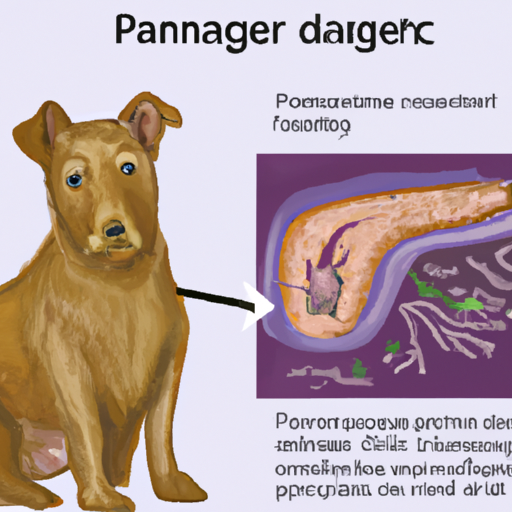Information is empowerment, and as a caregiver, understanding the health challenges that can affect your furry friend is crucial. One such health issue is pancreatitis in dogs. This condition can be distressing for both the pet and the caregiver, but with the right knowledge, you can manage it effectively.
Understanding Pancreatitis
Pancreatitis is inflammation of the pancreas, an organ that plays vital roles in digestion and hormone production. When your dog’s pancreas is inflamed, it can’t perform its functions properly, leading to discomfort and potential health risks.
Symptoms of Pancreatitis in Dogs
Identifying pancreatitis early is key to effective treatment. Watch out for these symptoms:
- Loss of appetite
- Vomiting or nausea
- Abdominal pain
- Fever
- Diarrhea
- Lethargy
- Dehydration
Causes and Risk Factors
Understanding the causes and risk factors of pancreatitis can help you protect your dog from this condition. Some common causes and risk factors include:
- High-fat diet
- Obesity
- Certain medications
- Metabolic disorders
- Trauma to the abdomen
Observe your dog’s health and lifestyle closely. If they’re exposed to any of these risk factors, it’s essential to take proactive steps to minimize the risk of pancreatitis.
Diagnosis and Treatment
Diagnosis of pancreatitis is usually performed through blood tests, ultrasound, or a combination of both. Once diagnosed, your vet will recommend a treatment plan, which may include:
- Dietary changes
- Medication to control pain and inflammation
- Fluid therapy to prevent dehydration
- Hospitalization in severe cases
Remember, each dog is unique, and the treatment plan should be customized to their specific needs.
Preventing Pancreatitis in Dogs
Prevention is always better than cure. Here are some ways to help prevent pancreatitis in your dog:
- Feed your dog a balanced, low-fat diet.
- Regular exercise to maintain a healthy weight.
- Regular vet check-ups to catch any potential issues early.
- Avoid giving your dog human food that is high in fat.
FAQ Section
Q: Can pancreatitis be cured in dogs?
A: With prompt treatment, most dogs can recover from pancreatitis. However, in some cases, it can become a chronic condition.
Q: Is pancreatitis in dogs contagious?
A: No, pancreatitis is not contagious. It cannot be passed from one dog to another.
Q: Can a dog live a normal life with pancreatitis?
A: Yes, with proper management, dogs with pancreatitis can live a normal, healthy life.
Q: How long does it take for a dog to recover from pancreatitis?
A: Recovery time varies depending on the severity of the condition, but most dogs start to improve within a few days of treatment.
Q: Can I prevent my dog from getting pancreatitis?
A: While you can’t completely prevent pancreatitis, you can significantly reduce your dog’s risk by maintaining a healthy diet and regular exercise.
Caring for a dog with pancreatitis can seem daunting, but with the right information and support, you can navigate this journey with confidence. Always consult with your vet for the best advice tailored to your pet’s specific needs. Remember, your love and care make all the difference in your pet’s health and happiness.



